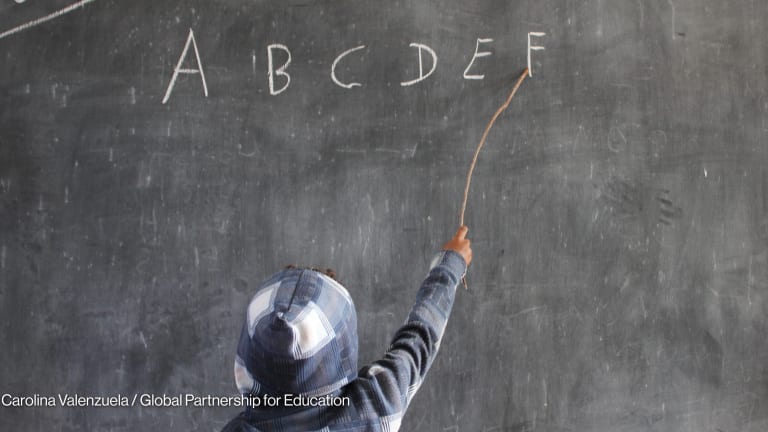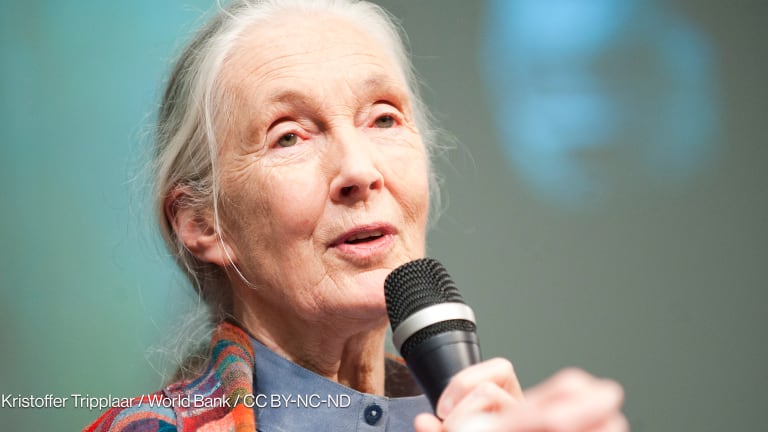
Over the past few years, young people have made themselves heard about the climate crisis. National leaders and decision-makers have had to listen to their demands to stop ruining the planet for them and future generations.
However, their protests about education have largely gone unheard, even though nothing is more important in a young person’s life than their education. That is about to change, for the world’s youth will soon present their hopes and demands for education in a Youth Declaration to the first high-level international meeting devoted solely to global education.
As my colleague Sarah Brown has said, the Transforming Education Summit at the United Nations from Sept. 16-19 is an opportunity for a global reset on education, much in the way that the 26th U.N. Climate Change Conference in Glasgow last year offered a last chance to pull the world back from a climate disaster.
The scale of the crisis in global education is mind-boggling, even if it has barely entered the public consciousness. Even before COVID-19, there were about 258 million children who did not have a place in school, and even now, there are still dozens of countries experiencing school closures. It is predicted that by 2030, more than 50% of young people in low- and middle-income countries won’t gain basic secondary-level skills. Currently, 70% of 10-year-olds in LMICs are likely unable to read basic texts, up from 57% pre-pandemic.
It’s worth reminding ourselves why education matters. It improves so much more than learning. It helps create more inclusive, tolerant, and prosperous societies. It aids economic recovery, innovation, and understanding of issues like the climate emergency. In the words of U.N. Secretary-General António Guterres, it is a “preeminent public good.”
In so many parts of the world, children attend schools that are unsafe, underfunded, and uninspiring. They deserve so much better.
—Theirworld and other organizations devoted to improving global education are all too aware of young people’s frustrations at the state of global education, and how gradual recent improvements in school enrolment numbers are likely to recede in coming years.
As part of our Let Me Learn campaign, ahead of the summit, we commissioned a survey of 10,000 young people in 10 different countries seeking their opinion on their education. We also closely consulted our network of nearly 2,000 global youth ambassadors for their views.
Three big themes emerged:
1. There is a clear divide in all countries between those who receive a quality education and those who don’t. There is very little commitment to the promise of educating every child.
2. Education is underfunded almost everywhere, and too many costs are loaded onto families.
3. Poor quality education is widespread, further hindered by poorly paid and unsupported teachers. A massive shake-up is needed.
In the survey, over 75% of respondents were concerned that current education systems were failing their generation, while 69% said that world leaders were not doing enough to provide quality education. Being in school is one thing; being taught well is quite another. In so many parts of the world, children attend schools that are unsafe, underfunded, and uninspiring. They deserve so much better.
Here are three interconnected commitments that leaders can make at the Transforming Education Summit, which would deliver the transformative change needed to set the world on a pathway to achieve education for all.
• Early childhood education. All governments and international donors should invest 10% of all education funding in early childhood education. These are the most fundamental years of learning. A child with good early childhood education is more likely to stay in school, find work, and contribute positively to society. Sadly, most countries underfund early childhood education, while donors allocate less than 1% of education aid to it.
• Education for refugees and people who are displaced. With well over 4.5 million children forced to flee their homes, the crisis in Ukraine has shone a light on how conflict and emergencies can disrupt education — something which afflicts more than 220 million children every year. We are calling for between 6-10% of humanitarian assistance to be devoted to education.
• Launch the International Finance Facility for Education, or IFFEd. This would be part of a new global finance plan to keep the world’s promise of giving every child a quality, inclusive education, contained in Sustainable Development Goal 4. We want governments to increase their own financing for education and the international community to use innovative finance to leverage more funding to support those efforts.
The pledges we want to see from the summit are about much more than funding and headline numbers — though those are essential. It is about a change of mindset. We need a comprehensive, unrelenting mobilization of political will, innovation, and resources to unlock a better future for our children.
In convening the Transforming Education Summit, Guterres has recognized that the world’s children have been ignored for too long — and he should be thanked for that. He has created an opportunity to turn a corner that heads of government, ministers, policymakers, and purse-string holders must not waste.








